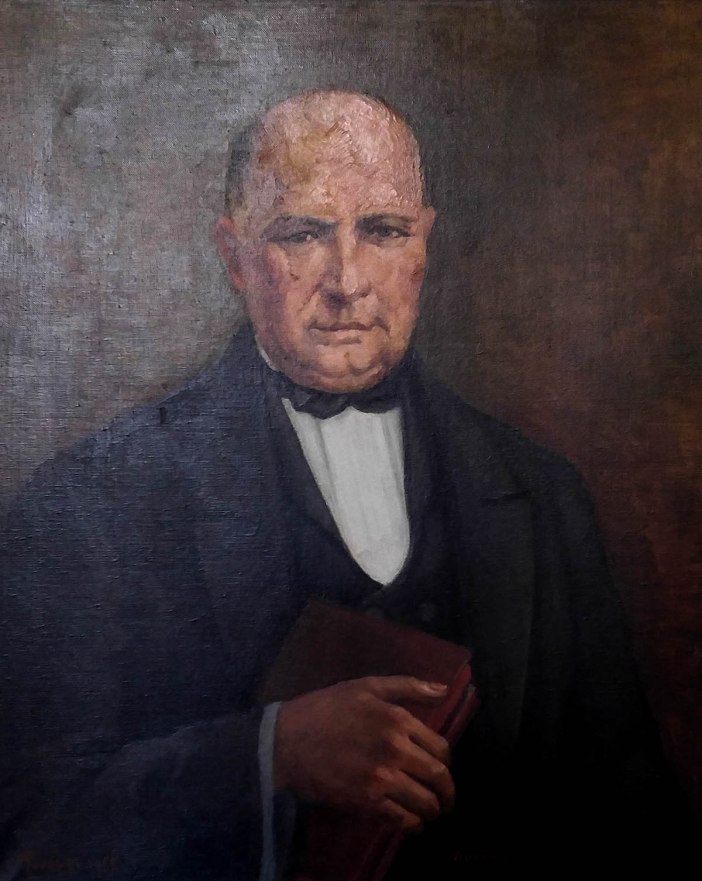
British Protectorate in Zakynthos (1815-1864)

On the 19th of September of 1809 there appeared in Zakynthos (Zante) three frigates which attacked with their cannons, and disembarked three thousand soldiers who took sides with the Greeks and besieged the fort. After a while, the French who were besieged there surrendered and departed.
The fort was seized and the English flag raised. A government was installed under the presidency of A. Komoutos and the disarmament of the inhabitants was arranged to avoid unlawful or civil disturbances.
In 1810 the other Ionian islands were liberated, excluding Corfu, and there followed the same political and military changes as in Zakynthos.
In 1814 Corfu was liberated and consequently an agreement was signed with England, Austria, Prussia and Russia on the 5th of November 1815 which placed the United States of the Ionian Islands exclusively under British protection.
The united state, in accordance with the treaty, would have the right of internal organisation, however an English “Governor” would define the convocation of a legal assembly to vote on the constitution of the states, The English General undertook the military administration, whilst merchant ships would carry from then the English flag.
This oxymoron “Independence under Protection” of the Eptanisa, was by its nature prejudging the provocation of public feeling and demands for liberation. The first English Governor to be appointed and established in Corfu was Thomas Maitland. Reaction to his excessive authority began from the first moment but they were all confronted with arbitrary and abusive dethronement and displacement of opponents with different opinions.
Eptanisa with a liberal spirit and independence from the Turkish yoke, acted as a pole of attraction for the Greek revolutionaries. Thus the preparations of the “Filiki Etairia” (Society of Friends) for the revolution of 1821, automatically found the support and participation of the islanders.
In the little church of St George in Zakynthos, many chieftains gave their oath to the representative of the Society, Pangalos.
The conspiratorial activity of the Society was made known to Maitland though, who was hindering their work with searches and persecutions. When the revolution started and the banner of liberty was raised, the Zakynthians and Cephalonians threw themselves into the struggle against the Turks. The participation of the Zakynthians in the revolutionary struggle despite their prohibitions, and enraged the English who were supporting Ali Pasha in order to weaken the Russian influence. That is why they imposed martial law, they disarmed the citizens and imprisoned eminent Zakynthians, giving as an excuse the peace of the people. But the terrorism which the English exercised left the souls of Zakynthians intact, who with great fervour participated in the battles of Messolonghi, Tripoli and wherever else the trumpet of liberation sounded.
Maitland died in 1824 and F. Adam acquired the Governorship until 1832. Temporarily after that Whitford became the Governor, who was replaced by the Philhellene Lord Nugent, who took care of the political improvement of the Ionian islands and gave an amnesty to all those who had participated in the Greek revolutionary struggle.
In 1833 an impeccable election was held which gave the new government, with Em. Theotokis as President, and led to the improvement of the constitution.
In 1835 Nugent was succeeded by the “Short-sighted” Baron H. Douglas.
In 1841, Mackenzie became Governor and in 1843, John Seaton, who proved popular, capable and liberal.
In 1848, the constitutional restriction of the press ended and the freedom of arranging the expenses of the islands was given to the parliament, a right which had always belonged to the English Governor.
Private print workshops were established, newspapers were issued, like the newspaper “The Future” (To Mellon) in Zakynthos. The cultural association “Foskolos” was established at the same time.
After Seaton, G. Ward became Governor who promised and followed improvements in the constitution. He was succeeded by J. Young in 1855, who had to face the famine, cholera, painful repercussions of the war in the Crimea, and the great catastrophe of the disease of the vines Filoxera. Young followed a moderate policy in a political scene which included three parties: the Radical Unionists, the Reformers, and the rich Anglophiles.
In 1858, the philhellene Gladstone was appointed governor in Corfu, who received the resolutions that the people of Eptanisa had composed and were asking for the Union with Greece. But England was not giving up the Protectorate, and his place was taken by Storts, who could not silence the cries against the English Protectorate, and for the Union. Thus England was obliged to give the Eptanisa to Greece one year after the dethronement of Othon and with the accession of George the 1st to the Greek throne.